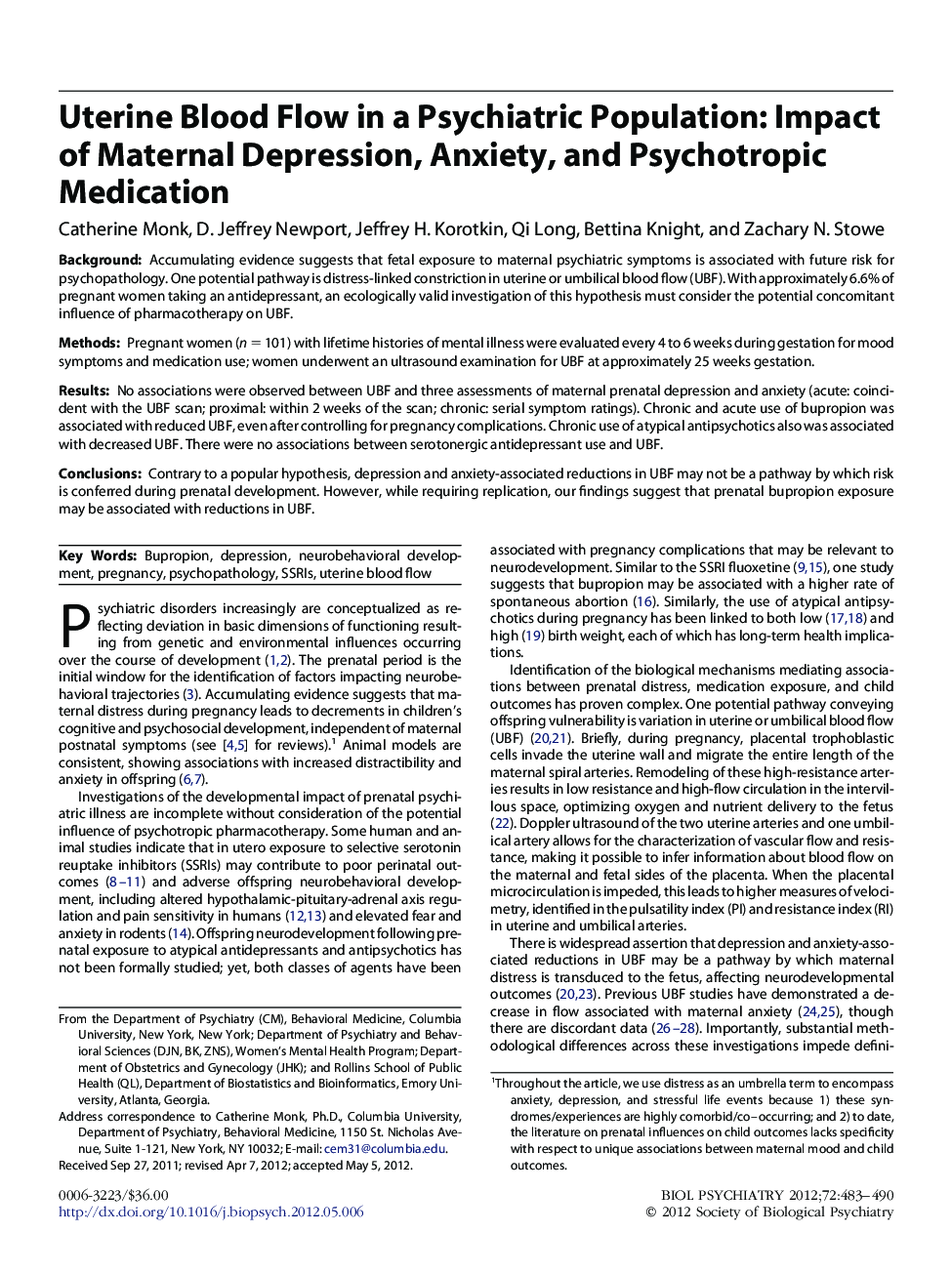| Article ID | Journal | Published Year | Pages | File Type |
|---|---|---|---|---|
| 6227768 | Biological Psychiatry | 2012 | 8 Pages |
BackgroundAccumulating evidence suggests that fetal exposure to maternal psychiatric symptoms is associated with future risk for psychopathology. One potential pathway is distress-linked constriction in uterine or umbilical blood flow (UBF). With approximately 6.6% of pregnant women taking an antidepressant, an ecologically valid investigation of this hypothesis must consider the potential concomitant influence of pharmacotherapy on UBF.MethodsPregnant women (n = 101) with lifetime histories of mental illness were evaluated every 4 to 6 weeks during gestation for mood symptoms and medication use; women underwent an ultrasound examination for UBF at approximately 25 weeks gestation.ResultsNo associations were observed between UBF and three assessments of maternal prenatal depression and anxiety (acute: coincident with the UBF scan; proximal: within 2 weeks of the scan; chronic: serial symptom ratings). Chronic and acute use of bupropion was associated with reduced UBF, even after controlling for pregnancy complications. Chronic use of atypical antipsychotics also was associated with decreased UBF. There were no associations between serotonergic antidepressant use and UBF.ConclusionsContrary to a popular hypothesis, depression and anxiety-associated reductions in UBF may not be a pathway by which risk is conferred during prenatal development. However, while requiring replication, our findings suggest that prenatal bupropion exposure may be associated with reductions in UBF.
